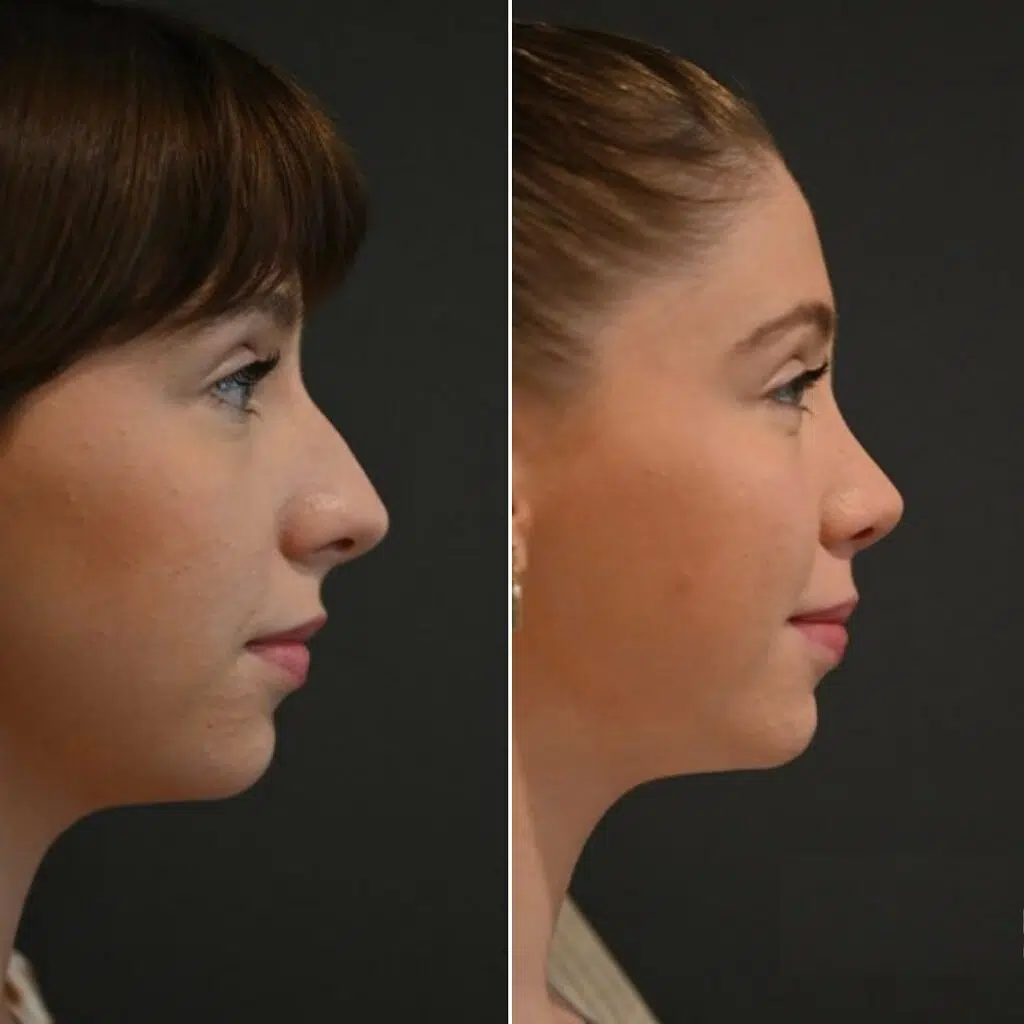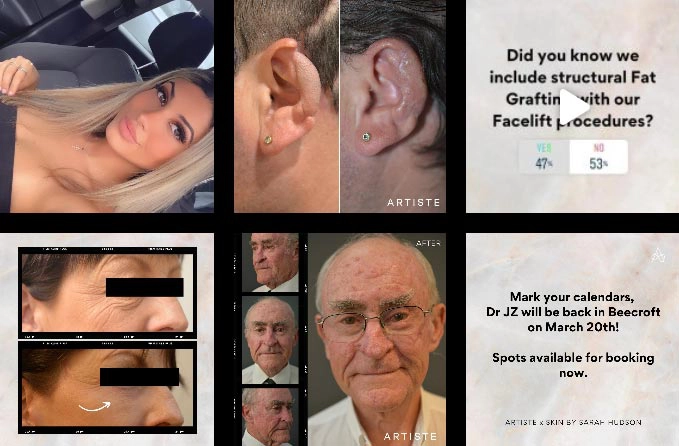Are You a Good Candidate for a Nose Job?
Model featured in photography

Choosing to pursue a procedure like rhinoplasty is a personal decision and can involve both functional and aesthetic considerations. It’s essential to approach this choice with an understanding of the various factors that make someone suitable for the surgery.
This includes evaluating health conditions, discussing motivations, and reviewing any functional concerns that may impact the decision.
In this article, we’ll provide an overview of some general characteristics commonly reviewed by healthcare professionals when determining if a patient may benefit from rhinoplasty.
This information can serve as a general guide; however, a comprehensive assessment with a qualified specialist is necessary to discuss individual goals, evaluate health status, and consider potential outcomes.
1. You must be in good health condition
A good candidate for a nose job must be physically healthy for the procedure—those with no severe medical conditions or illnesses. Patients with underlying conditions, such as diabetes, high blood pressure, lung diseases or others, must check with their doctor first.
2. You’re old enough to undergo the procedure
For adults, there is often no specific age limit to rhinoplasty. Instead, overall health, skin elasticity, and individual goals are typically the primary considerations.
People over the age of 60 may still explore rhinoplasty as an option, provided they are in good health and have realistic expectations about the outcomes and recovery process.
Deciding to undergo rhinoplasty is a personal choice that should be made thoughtfully. A consultation with a healthcare provider can help assess suitability and provide guidance based on individual health, lifestyle, and personal objectives.
3. You should be a non-smoker
Cigarettes contain nicotine that can produce blood clots, affecting your overall recovery. If you’re a smoker, your surgeon will advise you to stop smoking for several weeks before and after the surgery.
4. You understand the potential risks involved
Like in any surgery, rhinoplasty involves potential risks and complications. Your surgeon must discuss in detail what you will go through during and after the procedure, allowing you to have a clear understanding of the procedure and will help you decide if you will proceed.
5. You must have a positive attitude and realistic expectations
Emotional and mental readiness is essential when considering any form of cosmetic surgery, including rhinoplasty.
In addition to being in good physical health, it’s important for individuals to have a balanced perspective and clear, realistic goals regarding the procedure. Rhinoplasty can provide subtle changes that align with one’s natural features, but it’s crucial to understand that results vary and are not guaranteed.
Moreover, while a nose surgery may enhance certain aspects of one’s appearance, it cannot resolve underlying self-esteem issues or completely transform one’s overall look.
Individuals who approach rhinoplasty with a grounded outlook and an understanding of potential outcomes tend to experience greater satisfaction.
A consultation with a qualified healthcare professional can help clarify what rhinoplasty may realistically achieve, helping you make an informed decision based on balanced expectations.
Disclaimer: At Artiste Plastic Surgery, our Plastic Surgeons led by Dr Jack Zoumaras have been trained to the highest possible degree. All surgery has risks and it is always advised to get a second opinion. Risks are very real and we cannot guarantee any result. Results are illustrated as a guide only. All risks are managed and any need for revision surgery or complications (1-5%) can be managed by our specialist plastic surgeons.
Any statements on how you will feel is based on Level V Evidence:
Level V: How you will feel after plastic surgery varies between individuals, depending on psychological and physical factors. Our internal research is based on how patients in our practice feel after surgery.
The blogs are not a substitute for a medical consultation and do not form as part of the doctor to patient relationship.
SHARE THIS ARTICLE
Jul01
Facelift Recovery Tips: What Speeds Up Healing and What to Avoid
Disclaimer: At Artiste Plastic Surgery, our Plastic Surgeons led by Dr Jack Zoumaras have been trained to the highest possible degree. All surgery has risks and it is always advised ...
Jul01
How to Prepare for Facelift Surgery: What to Do Before Your Big Day
Disclaimer: At Artiste Plastic Surgery, our Plastic Surgeons led by Dr Jack Zoumaras have been trained to the highest possible degree. All surgery has risks and it is always advised ...
ABOUT ARTISTE
Artiste Plastic Surgery is an Award Winning Specialist Plastic Surgery practice led by internationally trained Dr. Jack Zoumaras, Plastic Surgeon and Peer Reviewed Face Surgeon
Artiste offers the latest Cosmetic Surgical Procedures of the Face, Breast and Body, inspired from leading centres around the world.
STAY IN THE LOOP
Enter your email address below to receive updates on new articles and VIP access to promotions and special offers.
FOLLOW US ON INSTAGRAM










